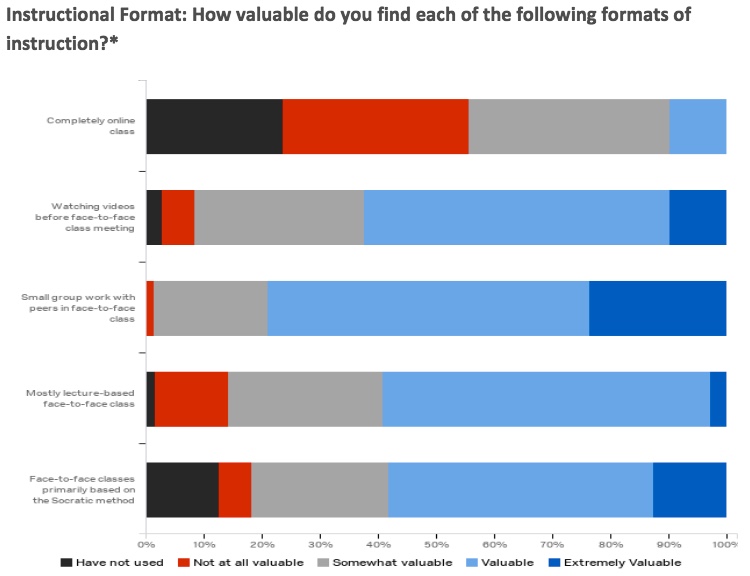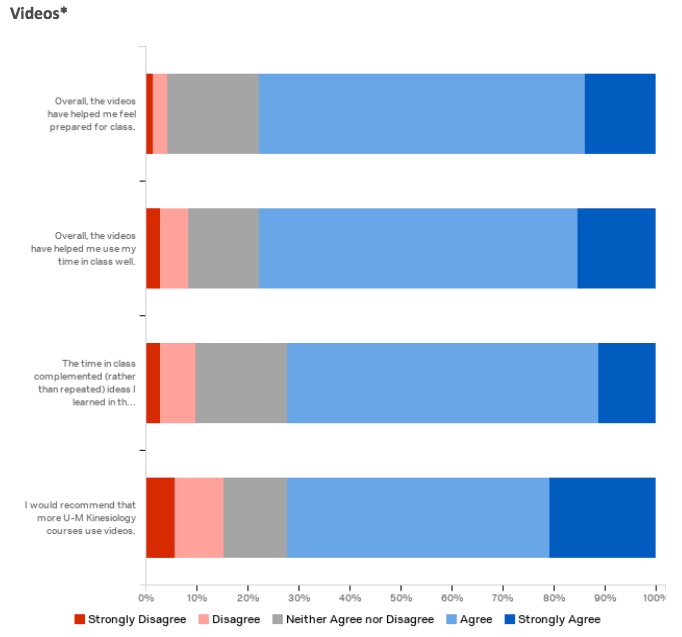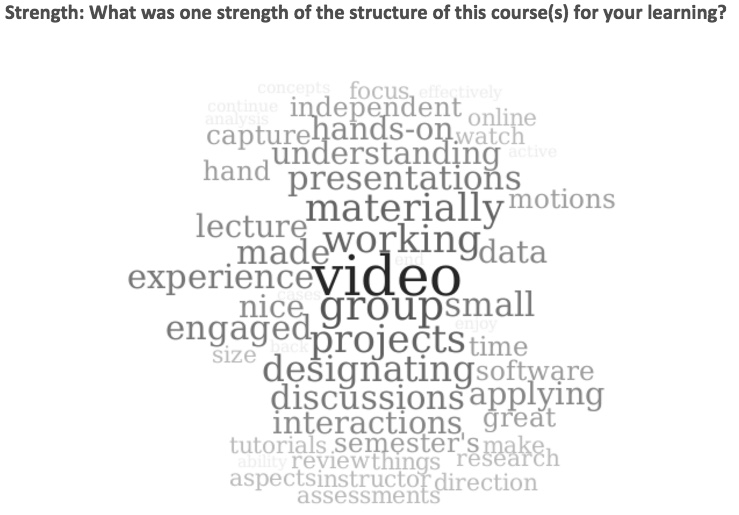Can hybrid modular courses increase the quality of student learning?
Hybrid Engaged Kinesiology Courses
Melissa Gross
Steven Broglio
Peter Bodary
Deanna Gates
Leah Robinson
The project will test the hypothesis that hybrid courses can transform teaching and learning practice by engaging more students in action-based learning while increasing curricular efficiency. If successful, an important outcome of the project will be a curricular framework that could be applied to other programs across campus. Specific project goals are:
- improve students’ critical thinking and inquiry/analysis skills
- provide more engaged learning opportunities for students
- increase efficiency in delivery of engaged learning courses
The hybrid engaged courses are designed to be different than traditional courses. Faculty work as a team to compose each of the shared learning goals and to design common activities that enable and assess student learning associated with each of those goals. In collaboration with the DEI Lab, the faculty team chose appropriate digital tools, such as developing content-based videos for students to watch prior to in-person class-time.
The hybrid courses are also designed to complement in each other in terms of addressing the learning goals. Class meetings are scheduled in order to allow students to enroll in more than one hybrid course each semester. For example, one course might be scheduled on Mondays and another Wednesdays, so that if a student enrolled in both courses, their schedule would have a traditional feel (MW).
The faculty developing and teaching the hybrid engaged courses had four specific questions they wanted to address with their assessment:
1. Do hybrid modular courses increase the quality of student learning? Each of the courses emphasizes the same set of learning goals, so student learning each of the courses were assessed using rubrics developed by the American Association of Colleges & Universities (AACU) VALUE rubrics). Specifically, the faculty adapted the following VALUE rubrics:
2. Do faculty and students value both the online and engaged components of the hybrid modular courses? The faculty also assessed the perceived value of both the online tools and classroom experiences of faculty and students in each course.
- The perceived value of the online tools were assessed using student surveys and faculty focus groups developed and facilitated by the Learning, Education, & Design (LED) Lab in SI.
- Classroom experiences were assessed using CRLT's Midterm Student Feedback service.
3. Do hybrid modular courses increase the number of students that participate in engaged learning? The faculty assessed student participation by tracking the number of students who enroll in the hybrid modular courses and comparing enrollments with traditional elective courses in the existing curriculum. Additional learning analytics assessments were facilitated by the LED Lab.
4. Do hybrid modular courses increase efficiency of course delivery? Along with assessing perceived value and classroom experiences of faculty, the faculty focus groups developed and facilitated by the LED Lab were also used to evaluate faculty effort needed to deliver engaged student experiences in the context of the hybrid engaged courses compared to traditional courses.
Below are some of the preliminary findings from student surveys. Please click the image to enlarge.




